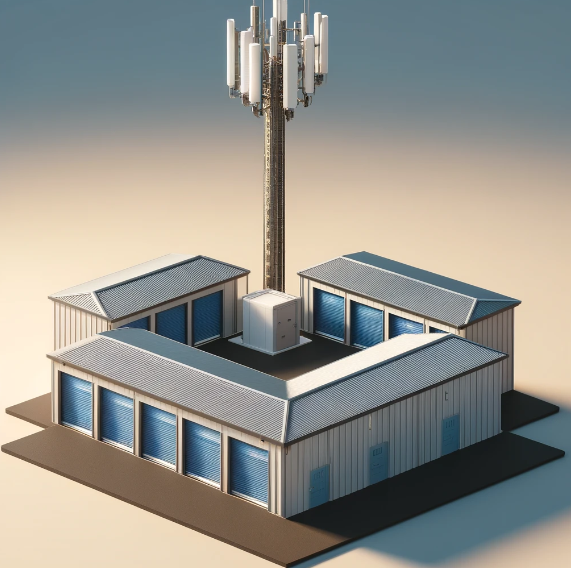US Cellular Possible Acquisition by T-Mobile or Verizon

Impact of T-Mobile and Verizon’s Potential Acquisition of U.S. Cellular on Cell Tower Landowners and Owners
Introduction
The telecommunications landscape is buzzing with discussions of a potential acquisition of U.S. Cellular by industry giants T-Mobile and Verizon. This strategic move could significantly impact the rural telecommunications sector, where U.S. Cellular has been a major player. This post delves into what the acquisition means for cell tower landowners and tower companies.
Background on the Parties Involved
- T-Mobile has expanded its footprint significantly throughout rural areas over the last 5 years, creating an overlap in most US Cellular markets.
- Verizon remains the largest U.S. cellphone carrier, focusing on maintaining its market dominance and expanding its technological edge.
- U.S. Cellular commands a market value of approximately $3 billion and is the 5th largest operator in the US, with a substantial portfolio of spectrum assets and ownership of over 4,400 cell towers.


Implications of the Acquisition
- Market Dynamics
- The acquisition could reshape the competitive environment within the telecommunications industry, potentially reducing the number of service providers and consolidating control over rural markets.
- The deal faces potential hurdles from regulatory bodies concerned with antitrust laws, given the reduced competition and possible market monopolization, especially in rural areas.
- As the maps above show, T-Mobile and Verizon both have coverage over most of the US Cellular markets.
- Impact on Spectrum and Network Coverage
- U.S. Cellular’ s spectrum assets are beneficial for both T-Mobile and Verizon, potentially enhancing their capabilities to provide extensive rural coverage and support for both fixed wireless and mobile communications.
- This acquisition could improve network infrastructure in underserved areas, albeit by reducing the number of competitors in those areas.
- Effects on Cell Tower Landowners and Tower Companies
- Lease Terminations: The consolidation will lead to the termination of U.S. Cellular ground leases for towers that lack additional wireless tenants, and collocation leases on towers where overlap occurs with T-Mobile or Verizon’s existing sites.
- Lease Rate Adjustments: To the extent that leases are not terminated, T-Mobile and Verizon’s lease optimization companies will attempt to use the threat of termination to negotiate lower lease rates. They may also try to renegotiate leases that they plan on terminating so that they can reduce the remaining rent and try to eliminate any obligation they have regarding removing the equipment or tower.
- Cell Tower Lease Buyout Impacts: The value of buyouts for leases involving U.S. Cellular could decrease significantly.
- Tower Usage and Capacity: The demand for tower usage might fluctuate, especially in rural areas where U.S. Cellular is predominant, potentially affecting the deployment strategies of remaining carriers.
- Future of Infrastructure Investments
- If US Cellular ceases to exist, that’s one less carrier to collocate on cell towers. That will lower the lease-up for towers overall.
- Certain tower locations may lose their strategic value if they primarily serve U.S. Cellular, influencing both operational decisions and the financial valuation of these assets.
Strategic Considerations for Stakeholders
- Landowners and tower owners should not make hasty decisions, as it will likely take at least one year before any transfer of spectrum/subscribers to T-Mobile or Verizon has been approved by regulators.
- Be careful of any attempts to renegotiate tower leases or ground leases, especially those where T-Mobile or Verizon agents attempt to claim that the acquisition of US Cellular sites will allow T-Mobile or Verizon to terminate their leases.
- The deal is by no means done. Thus, we will continue to monitor what happens going forward.
The potential acquisition of U.S. Cellular by T-Mobile and Verizon could significantly impact the telecommunications landscape, especially affecting cell tower landowners and tower companies. Stakeholders should stay informed and proactive to navigate the potential changes effectively.
If you are unsure what to do about your towers or your US Cellular leases, contact us. We can’t promise that we can stop your lease from being terminated, but we can provide actionable and helpful advice about your options.












6 thoughts on “US Cellular Possible Acquisition by T-Mobile or Verizon”
What effect would this have on those towers nowhere near the overlap zones? Arizona for example, at a tower with four tenants: T-Mobile, Verizon, AT&T and DISH.
For towers where there is no US Cellular service now, there should be no impact.
How k\might this affect an ATT tower on our property that has 5 G. We are in rural CO and ATT has much better service here than Verizon.
Shouldn’t have any impact as far as we know at this time.
I’m in the unenviable position of have one tower from each T-moble and US cellular on my property, the US Cellular does have A T&T on it but not great odds they both will stay is my guess. I do know who to call when things change and contracts need extensions. Thanks for your help on this.
Howland,
Fortunately, I suspect that in this case it doesn’t matter. With AT&T on the USC tower, it’s unlikely that US Cellular will terminate, even if they do sell to T-Mobile. More than likely the USC tower would be sold to a tower company after the merger.
Ken